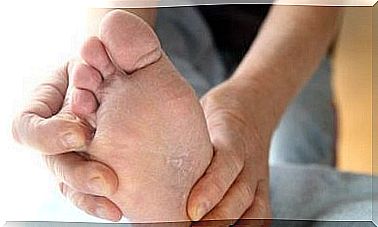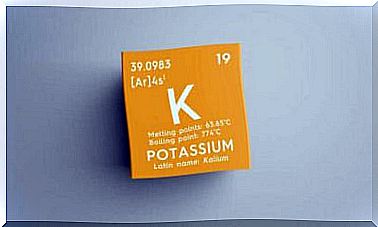The Best Time Of Day To Eat, According To Science

In general, we are often more concerned about how much and what we eat than about the best time of day to eat. However, it turns out that meal timing also plays a key role in maintaining optimal health.
For example, science has revealed that determining the best time of day to eat can be a good strategy for addressing certain conditions such as:
- type 2 diabetes
- heart disease
- obesity
Teaching a certain eating schedule is part of a healthy lifestyle. In fact, the body has a system of biological timers in every cell that regulates its rhythm for things like:
- sleep
- hormone release
- heart function
- food
They are also synchronized with certain signals from the environment that indicate the best time of day, for example, for food to be digested. As you can see, the body is biologically prepared for it. Eating at the wrong time can endanger not only your digestion, but also your overall health.
The best time for breakfast
Breakfast is about breaking the nighttime fast. A group of experts argue that the body’s biological timer is more efficient at digesting, absorbing and metabolizing food earlier in the day. They call this the active phase.
For example, the insulin level that regulates blood sugar is higher in the morning. Eating breakfast therefore helps to bring the right amount of sugar into the blood. This is the energy needed for the rest of the day.
Make sure you have breakfast between 6 and 10 am. This is the ideal time to prepare for the next meal that follows a few hours later. You should eat within an hour of waking up, and breakfast should contain the following components:
- protein
- whole grains
- fresh fruit
- healthy fats
What is the best time of day to have lunch?

Doctors recommend having lunch every day (Spanish link). Research confirms that eating later in the day can promote obesity. Eating after 3 p.m. also hinders weight loss. The best time for lunch is therefore between 12:30 and 13:30.
The time difference between lunch and breakfast should be between four to five hours. Add a snack that is rich in protein and carbohydrates if you can’t bridge that, to avoid feeling hungry at that point. The metabolism reaches its peak during lunch and this improves digestion.
Evening meal

Professionals recommend dining four to five hours after lunch. In addition, you should have eaten at least two hours before bedtime to optimize the digestive process. The quality and quantity of the food are also important, as too much fat and carbohydrates can predispose you to weight gain.
The optimal times for dinner are between 6:00 PM and 7:30 PM. Eating around this time allows the body to focus on getting a good night’s sleep and renewing tissues, rather than working on digesting a large meal.
The International Journal of Obesity also reminds us that the body’s ability to regulate blood sugar slows down at night. People who work night shifts therefore gain weight faster and are more likely to develop diabetes.
Certain foods contain high levels of an amino acid called tryptophan, which aids in the secretion of serotonin and melatonin. They are relaxants and sleep inducers that convert fatty acids into energy. In addition, a review of the effect on obesity concluded that the following foods are among the best products for dinner:
- fish
- fruit
- nuts
- Turkey
Tips for determining the best time of day to eat
It is important to emphasize that the response to a particular dietary pattern varies from person to person. This means that what is good for one person may not necessarily be good for another. This is why the best way to create a health-promoting schedule is to work with a dietitian.
In practice, it is not so easy to balance meals with a certain schedule. So here are some tips to keep things running smoothly. You can also choose the best time of day to eat. Let’s take a look at the following recommendations:
- Make healthy changes. Once you discover you’ve done things wrong and want to correct them, change your eating schedule to suit your needs.
- In addition, include physical activities in your schedule to see how your body is behaving. Change your workout schedule from morning to night so you can relax as much as possible.
- Prepare your meals in advance to eat on time. This way you stay on schedule and avoid unhealthy snacks.
- Enjoy your meal. If you eat more slowly and chew well, you digest the food better.
- Provide healthy snacks when you have to work and postpone the main meal.
- Keep food in the fridge when you are at work or take a cool box with you in the car.
- Remember the 4 to 5 hour intervals from the last meal if you have to work at night.
Keep in mind that it’s not just about quantity and quality when it comes to the food you eat. It can significantly affect your well-being. Planning a good meal plan should therefore be part of your healthy eating habits.









